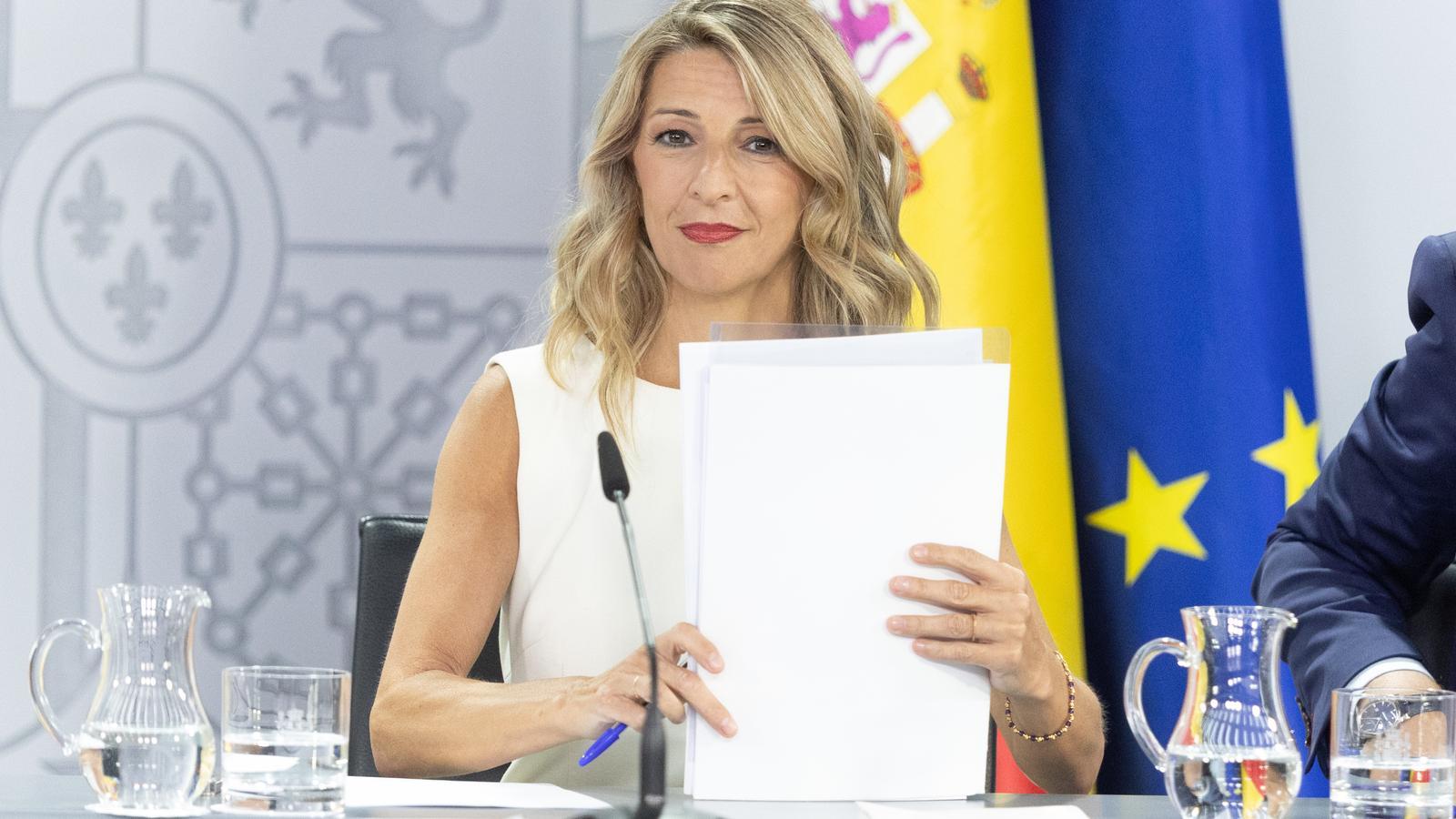Díaz accuses the People's Party of blocking the reduction in working hours: "It's the main obstacle to moving forward with the 37.5-hour work week."
The second vice president of the Spanish government criticizes the fact that the conservatives have not met to discuss the measure.

BarcelonaReduction of the working day up to The 37.5 hours per week is one of the pending issues that the Second Vice President of the Spanish government and Minister of Labor, Yolanda Díaz, had postponed until the start of the school year in September. The Sumar leader assured this Monday in an interview on TVE that she continues negotiating with parliamentary groups to push it through Congress, but directly accused the Popular Party (PP) of trying to block the measure.
In fact, Díaz said that this summer she was able to speak with young PP voters who were also demanding these rules on reduced working hours and conciliation permits. For this reason, she also doesn't understand why the party's president, Alberto Núñez Feijóo, has given the order not to meet to discuss this matter. "Even the Popular Party, with its demographic data, knows that this measure is key for its electorate [...]. What are the obstacles [to the 37.5-hour week going ahead]? Well, the first, 137 deputies from the Popular Party, we don't know what they will do on this matter," she indicated. The minister reiterated that "there is no better policy than getting involved in the lives of 12.5 million people, who are those affected."
"I hope the Popular Party will be institutional and I hope it will give us an answer at this meeting in September. I have met with all the political parties, whom I thank, and they are in favor and are negotiating. And the PP hasn't given an answer," Díaz noted. In any case, the vice president assured that she remains "hopeful" that the PP will sit down with her in September to discuss the reduction of working hours. "It is very serious that a political party that says it wants to govern Spain does not meet with a vice president to discuss a central issue that has to do with the lives of workers, with the productivity of companies, with small businesses," she considered.
"Immediate" meeting of the SMI experts
Díaz also said she will "immediately" convene the committee of experts advising the Spanish government on the minimum interprofessional wage (SMI) to begin the process toward a new increase in this minimum wage, currently set at €1,184 per month in 14 installments. The minister stated that this group has been working on recommendations all year and that her department will take these conclusions to the negotiating table with employers and unions.
When asked whether this increase in the SMI will be exempt from personal income tax, as has been the case this past year, Díaz insisted that tax justice "must start at the top and not the bottom," because these are "minimal" wages. "The focus being on very small wages, and not on wages that must contribute [...], well, that scares me a little. But this issue has already been resolved. Now we've made the rule so that they won't be taxed this year," she insisted. It's worth remembering that the agreement between the Ministries of Labor and Finance to waive the minimum wage was applicable this year, but it remains to be seen what will happen in 2026.
